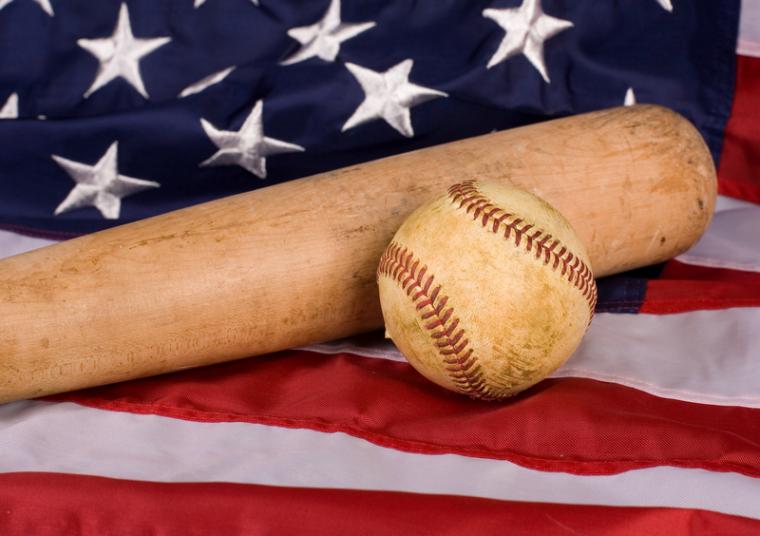

Spring training cities in Arizona and Florida dodged a big financial bullet with the resolution of Major League Baseball’s negotiations. Were the lockout to have continued, the impact would have been devastating to cities that had been affected in 2020 and 2021 by the pandemic.
Front Office Sports reports that communities in Florida and Arizona could have missed out on combined economic activity worth around $1.3 billion. In two disrupted seasons (the 2021 year saw many stadiums with reduced capacity), a return to business as usual was badly needed.
In fact, FOS notes, “A study from 2018 found that spring training brought a $687 million impact to Florida, with 1.5 million fans in attendance, 52% from out of state. A separate study found that the [Phoenix area’s] Cactus League brought $644 million to the area in 2018. The league said that 1.8 million people attend each year, 60% from out of state.”
But with spring training undeerway, businesses are rejoicing - and welcoming back the tourists.
“[This] has a direct impact on the surrounding businesses, lodging and all that is associated with tourism and spring training,” Bridget Binsbacher told The New York Times. She is the executive director of the Cactus League, where 15 MLB teams host spring training, as well as a member of the Peoria, Ariz., City Council. (Peoria is the spring home of the San Diego Padres and Seattle Mariners.)
Additional fallout would have been the hard feelings from fans who had counted on a spring break spent watching MLB action. And unfortunately, some made the trip without checking the news.
“It’s so sad,” Mandy Engblom, a bartender at Bauser’s in Dunedin, Fla. (spring training home of the Toronto Blue Jays) told the Tampa Bay Times. “We had a few people come in who had bought tickets for games that have been cancelled, so they had to figure out what to do with these tickets, and their hotels or Airbnb. So it’s not just affecting us, it’s affecting so many of these people.”
Kevin Phelps, city manager for Glendale, Ariz., recently wrote an opinion piece for azcentral.com in which he called on Major League Baseball “to demonstrate partnership” with spring training cities. He proposed a $10 million subsidy to the Arizona Office of Tourism.
“These dollars would help promote our tourism and hospitality industry, which has been significantly impacted by canceled and shortened Cactus League seasons,” Phelps wrote. “These dollars would target new visitors to help fill hotel rooms that otherwise would have been booked if the Cactus League were taking place.”
He also proposed that the MLB help cities that have invested in spring training facilities to secure a corporate sponsor for naming rights associated with the Cactus League. “Working as partners with Arizona cities, new sponsorship revenue can be reinvested into promoting tourism to support the Cactus League,” he wrote. “A true win-win for the region and the teams that benefit from full stadiums.”
Restaurants, not just in spring training areas but in hometowns with MLB teams, would have been among the businesses hardest-hit, had the lockout continued. Employees at El Compadre, a Los Angeles establishment near Dodger Stadium, told CBSLA that game days boost business by at least 20 percent. And The Short Stop, another neighboring bar, is in a similar situation.
“Usually, we’d be scheduling all around Opening Day and then into the start of the game season,” employee Harry Zallen said. “We up our staff, we see our sales just go a lot higher, sometimes several times over.”
Pickles Pub in Baltimore, which relies heavily on fans coming and going from nearby Oriole Park at Camden Yards, would have found itself in — ahem — a pickle, too.
“The owners are trying to get together, trying [to] put everything in place for Opening Day, but all that stuff is teetering because we don’t know when we’ll actually get the Opening Day game,” Anthony Washington, general manager of Pickles Pub told WMAR ahead of the resolution of the negotiations.
Fortunately, the MLB opening day is April 7 and Pickles, like others, can count on that game day traffic, something that drills down to a very personal level for individual employees.
“On game day, that’s when we make our money,” Drake Horner, a server at Wynkoop Brewery near Coors Field in Denver, told TheDenverChannel.com. “I go to grad school, I pay rent. I need it to pick up. We get a post-game rush, a pre-game rush — it’s how we save up money for the slow season.”
According to the Washington Post, the broad strokes of the deal made between players and MLB “were built on compromise, with neither side getting everything they wanted. The salary threshold at which team spending will incur tax penalties — known as the competitive balance tax — will be higher than ever. The postseason will expand to include 12 teams. MLB revenue will fund a new bonus pool to be distributed among high-achieving young players with less than three years of service time. Minimum salaries will rise, and the amateur draft format will include a lottery for the first pick.”
But the mostly multi-million-dollar salaries of pro athletes are the last thing on the mind of people like the Cactus League’s Binsbacher, who is simply grateful local businesses can still benefit from the tourism dollars brought in by spring training.
“These are people behind these businesses and establishments that rely on this influx of travel year after year,” she notes. “It’s a big deal, and that’s our primary concern.”

